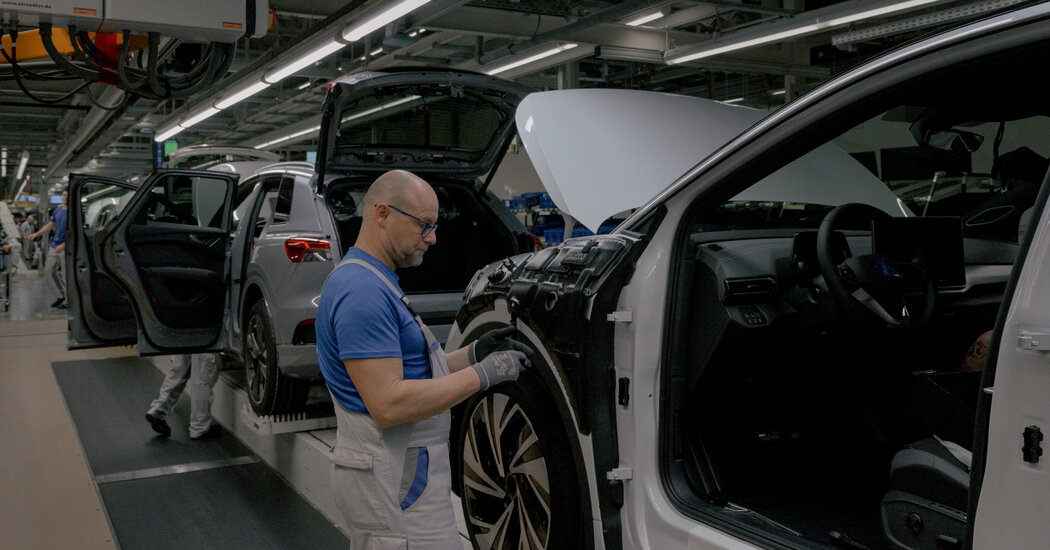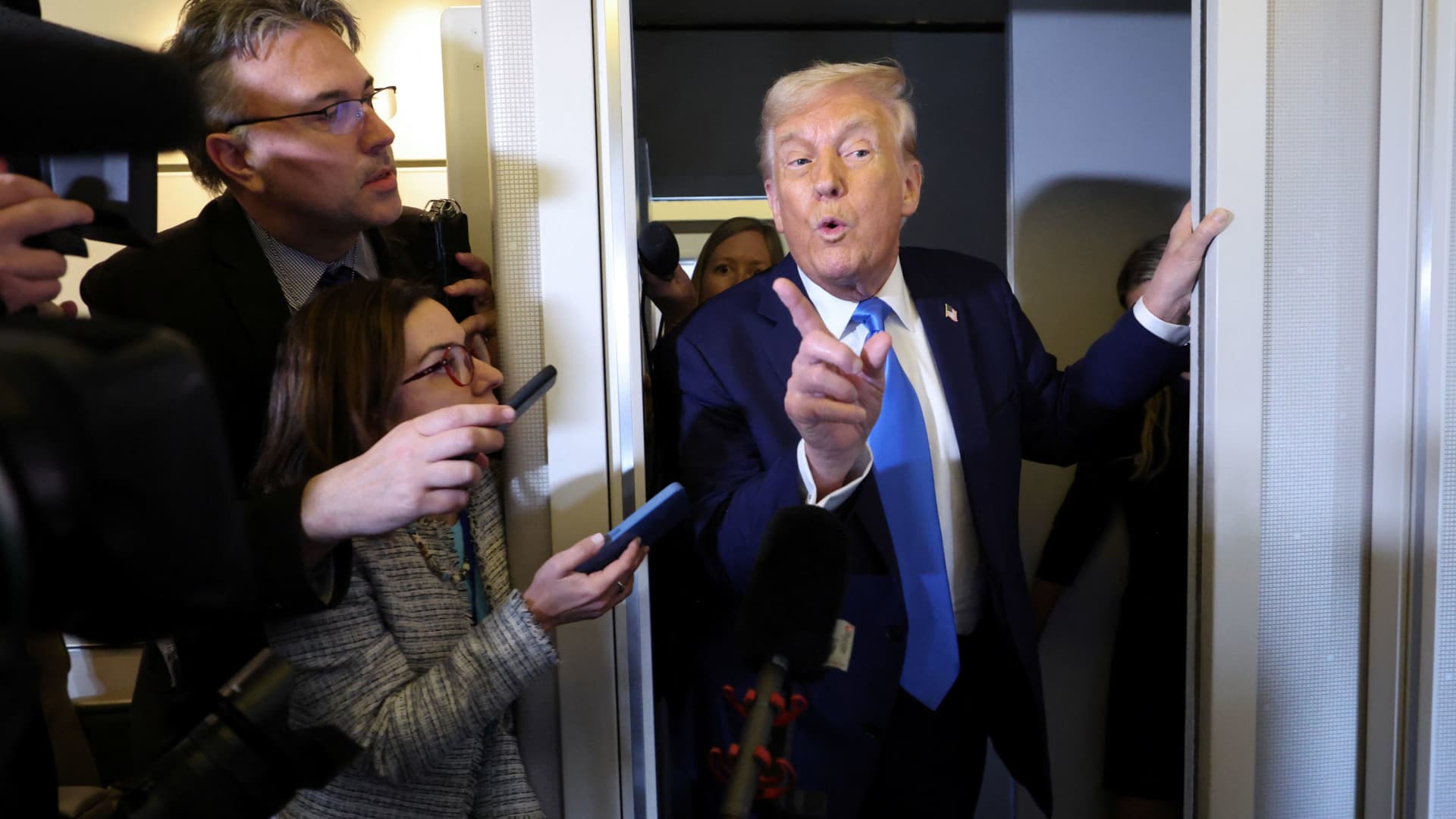
President Trump’s sweeping tariffs on automobiles drew a sharp reaction on Thursday from Germany, which called on the European Union to hit back with a “firm response” to measures that would “harm the U.S. and the E.U., and global trade as a whole.”
Mr. Trump announced on Wednesday that he would impose a 25 percent tariff on cars and car parts shipped to the United States, putting pressure on America’s top trade allies around the globe. The tariffs, which he said were permanent, will go into effect on April 3.
The United States is a crucial market for Germany’s auto industry, which ships vehicles from automakers like BMW, Mercedes-Benz and Volkswagen to American dealers.
“It must be clear that we will not back down,” Robert Habeck, Germany’s economy minister, said in a statement on X. “Strength and self-confidence are required.”
He added that Germany would support the European Commission, the European Union’s executive arm, as it negotiates with the United States to find a solution that averts a tariff spiral.
France’s finance minister, Eric Lombard, called Mr. Trump’s action “very bad news” and said the only alternative was for Europe to increase its own tariffs on U.S. auto imports.
Mr. Trump’s announcement, which will apply both to finished cars and trucks that are shipped to the United States and to imported auto parts, sent shares of German automakers tumbling on Thursday. Shares of the Italian luxury carmaker Ferrari and the Swedish manufacturer Volvo also slumped. The rout encompassed European auto parts makers as well as the tire producers Pirelli and Continental.
One of the companies facing the greatest pain is the German carmaker BMW. It said in a statement Thursday that a trade war “would not have any benefits,” and called on the European Union and the United States to “promptly find a trans-Atlantic deal that creates growth and prevents a spiral of isolation and trade barriers.”
The prospect of a drawn-out trade war would have wide-ranging effects. “The impacts of this move are clearly detrimental, and are likely to trigger further and fresh retaliatory actions by affected nations,” analysts at Bernstein said in a note to clients.
Automakers have the choice of absorbing the cost of the tariffs or passing them on to consumers, the analysts noted. Prices could rise up to $12,000 per car, and “the resulting inflation could pressure the Trump administration into backing down,” they wrote.
Mr. Trump’s tariffs are hitting the European auto industry at a time when it is facing a transformation and increased international competition, the European Automobile Manufacturers’ Association said in a statement.
“European automakers have been investing in the U.S. for decades, creating jobs, fostering economic growth in local communities, and generating massive tax revenue for the U.S. government,” said the group’s director general, Sigrid de Vries. “We urge President Trump to consider the negative impact of tariffs not only on global automakers but on U.S. domestic manufacturing as well.”
Hildegard Müller, the president of Germany’s main lobby group for the automobile industry, VDA, called the tariffs “a fatal signal for free and rules-based trade.”
The tariffs “represent a considerable burden for both companies and the closely interwoven global supply chains of the automotive industry — with negative consequences for consumers in particular, including in North America,” Ms. Müller said in a statement.
“The risk of a global trade war, with negative consequences for the world economy and growth, prosperity, jobs and consumer prices, is very high,” she added.
Melissa Eddy contributed reporting.







